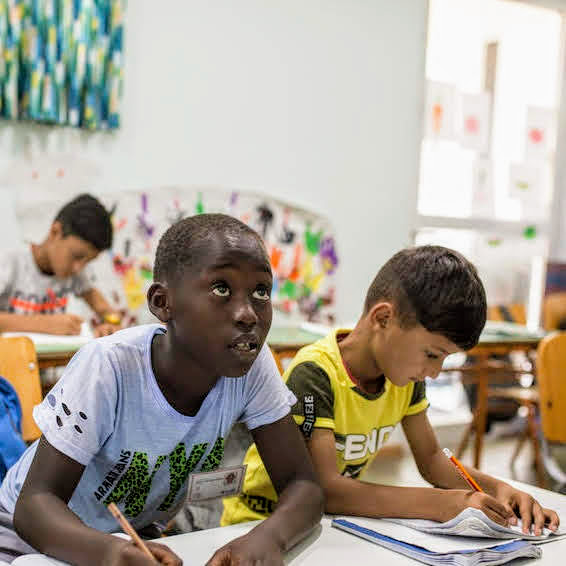Cox's Bazar Panel Survey Baseline, 2019
Bangladesh, 2019
Get MicrodataIdentification
HARVARD_DATAVERSE_BGD_2019_CBPS_v2.1
Cox's Bazar Panel Survey Baseline, 2019
| Name | Country code |
|---|---|
| Bangladesh | BGD |
Across the world, the number of migrants displaced by civil conflict is on the rise. Recent estimates suggest that nearly 65.6 million people have been forcibly displaced within their own countries or across borders, and that most of them (84 percent) are living in developing countries (UNHCR 2017). Despite the persistence and scale of this displacement, there exists little evidence, or even basic data, addressing the core policy problem: what type of programs should be prioritized to maintain or improve the wellbeing of natives and refugees. The Cox's Bazar Panel Survey (CBPS) endeavours to provide such data through a comprehensive, large-sample survey that tracks both host and refugee households over time in Cox's Bazar, Bangladesh, the site of one of the world's largest refugee camps.
Survey Data
Anthropometric Data
Household
Individual
Version
v2.1: Edited, anonymous dataset for public distribution.
2021
Scope
The household interview collected the following information:
Household Roster: A listing of all household members including socio-demographic information, education, and employment or activity status. A retrospective module captures the same information on household composition prior to displacement, i.e., as of July, 2017.
Housing Characteristics: Dwelling’s building materials, intra-dwelling population density, number of households sharing the same dwelling and households’ rental, and access to water, electricity and toilet facilities.
Food Security: General availability and variety of food, coping strategies for food scarcity, identifying intra-household inequalities in nutrition and resource allocation.
Consumption: Detailed item-by-item information on consumption of food and non-food items, with a seven-day recall period for food and a thirty-day recall for non-food, as well as access to markets.
Assistance: Types of assistance or aid received by the household, quantity of assistance bartered, and goods/services receiving in exchange.
Assets: Key assets owned, perceived resale value, ownership in July 2017, and status of items in Myanmar.
Anthropometrics: Height and weight for one randomly selected child under the age of 5.
The adult interview collected the following information:
Labor Market: Adult respondents’ employment activity in the past week and past year, including whether the respondent is a wage worker or self-employed and occupation, job search methods, monetary or in-kind compensation, and profits.
Labor Market History: A retrospective employment details for the period July 2016 to July 2017.
Migration History: Short-term (between two weeks and one month) and long-term migration history (more than one month), to identify variation in adult respondents’ area of settlement before and after July 2017.
Use of Health Services: Health care utilization and health status, commuting time to health care centers, medicine expenditures, and whether patients pay for their visit or go to public clinics.
Crime and Conflict: Exposure to crime and conflict issues in their neighborhood, including bribery, any type of harassment and family disputes, among others, as well as whether victims look for help, and if so, where they seek assistance.
Trauma and Mental Health: Depressive symptoms, mental health, traumatic experiences, and symptoms of trauma, using the Patient Health Questionnaire 9 (PHQ-9) and Harvard Trauma Questionnaire (HTQ).
| Topic |
|---|
| Health and Nutrition |
| Health |
| Livelihood & Social cohesion |
| Food security |
| Mental Health |
| Food Distribution |
| Health Care Referral Services |
Coverage
Cox's Bazar District
Households residing in Cox's Bazar camps. See enclosed Basic Information Document for further details.
Producers and sponsors
| Name | Affiliation |
|---|---|
| Baird, Sarah | The George Washington University |
| Davis, C. Austin | Yale University; American University |
| Genoni, Maria | The World Bank |
| Lopez-Pena, Paula | Yale University |
| Mobarak, Ahmed Mushfiq | Yale University |
| Palaniswamy, Nethra | The World Bank |
| Seager, Jennifer | The George Washington University |
| Vishwanath, Tara | The World Bank |
Sampling
The sample is representative of three strata: i) residents of the refugee camps, ii) host communities within 15km of refugee camps, iii) host communities further than 15km from refugee camps. Samples were selected via a multistage procedure that selected small geographic areas as PSUs, listed each PSU, and then drew households from that listing. See Basic Information Document for complete details.
Data collection
| Start | End | Cycle |
|---|---|---|
| 2019-03 | 2019-08 | P1 |
- Face-to-face [f2f]
| Name |
|---|
| Innovations for Poverty Action Bangladesh |
Depositor information
| Name |
|---|
| Research Transparency, Data Ethics, and Governance, Innovations for Poverty Action |
Distributor information
| Organization name |
|---|
| Harvard Dataverse |
Contacts
| Name | Affiliation | |
|---|---|---|
| Research Transparency, Data Ethics, and Governance | Innovations for Poverty Action | transparency@poverty-action.org |
Metadata production
HARVARD_DATAVERSE_BGD_2019_CBPS_DDI_v1.0
2021-03-04
Metadata version
1.0
2021-03-04
